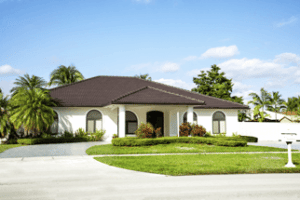
The name ‘reverse mortgage’ almost speaks for itself in the sense these types of mortgages reverse a home’s equity accumulation through payment(s) to the homeowner. To understand the pros and cons of reverse mortgages, taking each element of the mortgage one step at a time can help build a familiarity with its features.
A good starting point for becoming informed about these loan products is eligibility which includes applicants aged 62 years old and above. Another qualifying criteria is the value of a home’s equity, and any preexisting debt on the property. The pros and cons of reverse mortgages differ from person to person, however since reverse mortgages allow the homeowner to receive payment and remain in the home until they leave, three financially important benefits exist.
Advantages
-
It can eliminate the need for monthly rent or mortgage payments
-
Allows for additional cash flow during retirement
-
Is not considered taxable income
The net gain is essentially an increased tax free ‘income’ with the cost of that income covered by the terms of the loan. Additionally, for borrowers who are near taxable state estate values, a reverse mortgage may reduce net worth enough to bypass the tax. Costs of reverse mortgages aren’t necessarily prohibitive although they are often cited as a disadvantage that outweighs the pros of a reverse mortgage.
The reality is tenured reverse mortgages can never cost more than the value of the home, and tenured payments are perpetual at least in the case of Department of Housing and Urban Development (HUD) Home Equity Conversion Mortgages (HECM). These are very important loan features because they protect the homeowner and any heirs from unmanageable debt burden and longer than accounted for lifespan.
Disadvantages
-
The relatively high upfront and backend cost
-
The cost in proportion to the size of the loan.
Upfront costs for a reverse mortgage can be between 3-4% of a home’s determined value for HUD loans. This cost does not include monthly insurance premiums and assessed interest on the loan as it grows. As the reverse mortgage increases in size, the origination fees and mortgage premium decrease as a percentage of the total income received from the loan. Heirs of reverse mortgage holders be they a spouse or other beneficiaries become responsible for the loan in the event of death.
Naturally, equity values and interest rates at the time of the reverse mortgage are another factor to consider. Reverse mortgages have different payment structures called tenure, term and line of credit. In the case of line of credit, a Home Equity Line of Credit (HELOC) costs less upfront particularly if the interest rate is similar to a reverse mortgage line of credit.
The pros and cons of term and tenure reverse mortgages rest in:
-
The formula used by the lender,
-
The age and life expectancy of the borrower,
-
The market value of the home at the time of mortgage and 4)
-
The specific terms of the loan.
In summary, reverse mortgages help homeowners convert home equity into cash. Payment on reverse mortgages is not due to the lender until after leaving or selling the home, and the loans are available in both fixed and variable interest rates. The primary feature of these types of mortgages is their distribution of supplementary income during retirement. The built in safeguards of reverse mortgages can also protect homeowners from foreclosure, an advantage that allows the homeowner to remain in the home indefinitely.











